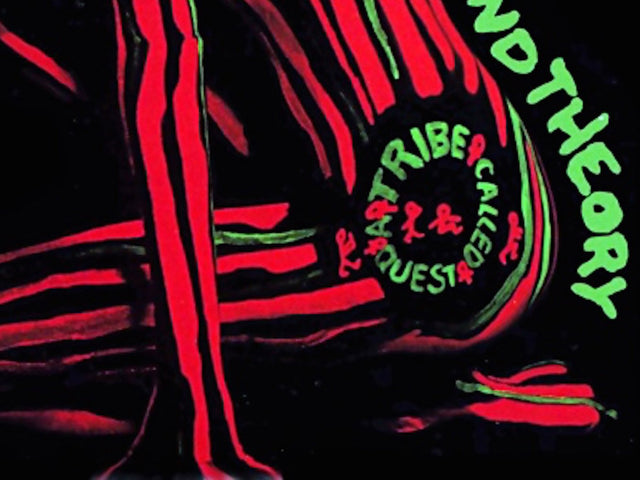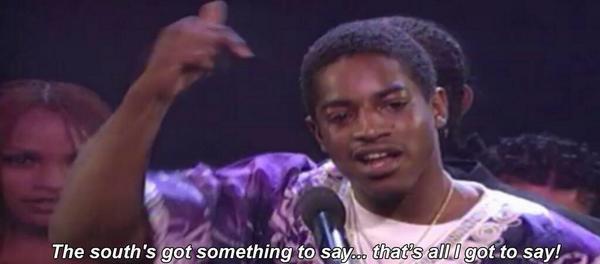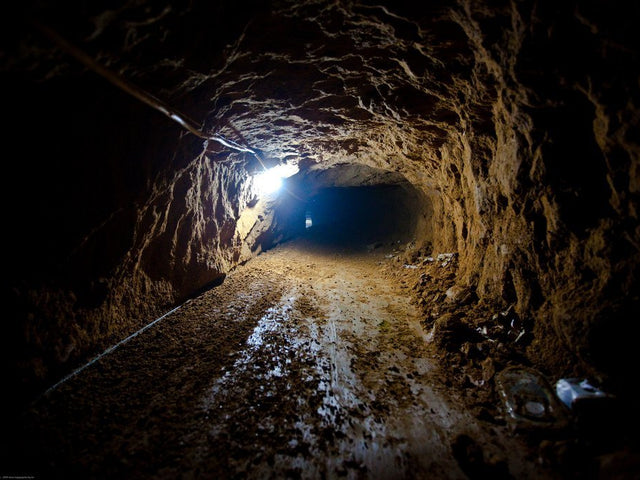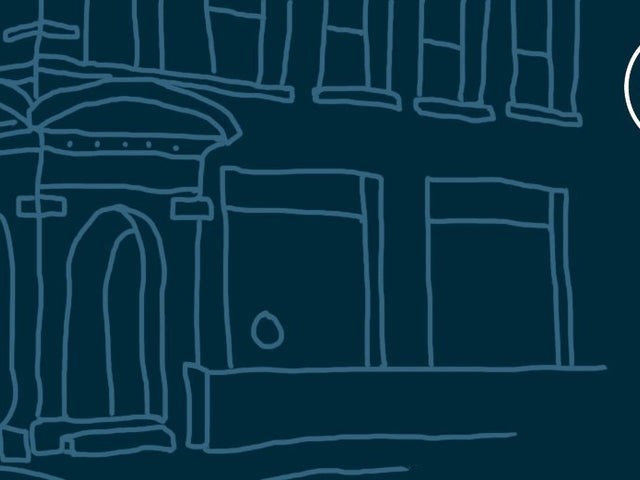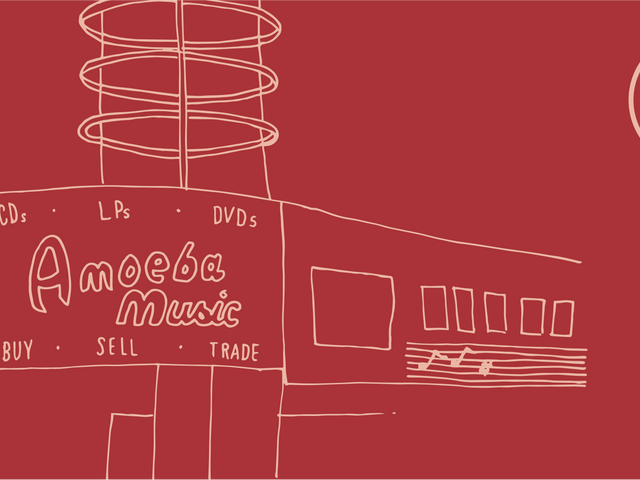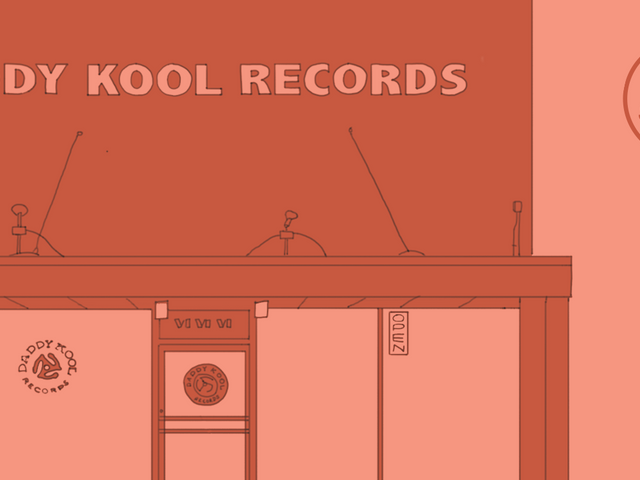พบกับองค์กรไม่แสวงหาผลกำไรที่สอนเยาวชนในบรูคลินเกี่ยวกับการเป็นนักดนตรีที่มีสติ
เราทำเสียงดังและให้การศึกษาแก่ปีศาจตัวน้อยที่สร้างคลื่นในชุมชนของพวกเขาและในชีวิตของนักดนตรีที่มีความฝัน
ภาพโดย Phoenixx Flix
nมีรากฐานจากการเป็นพันธมิตร การสื่อสาร และความรับผิดชอบต่อสังคม องค์กรการกุศลที่มีทัศนศิลป์และการศึกษา We Make Noise และ Educated Little Monsters ได้ก่อตั้งความร่วมมือที่มีอิทธิพล ทั้งสององค์กรทำงานอย่างไม่รู้จักเหน็ดเหนื่อยเพื่อให้พื้นที่ปลอดภัยและทรัพยากรสำหรับเด็กที่ถูกทำให้เป็นชายขอบและเด็กพื้นเมืองจากบรูคลินให้สร้างสรรค์ นึกถึง และสร้างชุมชน โครงการที่ขับเคลื่อนโดยนักเรียนตลอดทั้งปีของพวกเขาซึ่งเริ่มต้นแยกกันในปี 2013 ครอบคลุมการสอนเครื่องดนตรี เต้นรำ การทำเครื่องประดับ และการออกแบบภาพจิตกรรมฝาผนัง ตอนนี้มักจะเป็นความร่วมมือกันอย่างต่อเนื่อง
A cornerstone of their program, We Make Noise also runs their annual summer NYC Rock Camp—a teaching artist-powered week of music, creativity and workshops centered on themes including community, protest, and culture and identity. Hosted at Williamsburg Charter High School, Rock Camp is open to all youth regardless of their ability to play. Campers are given a crash course in becoming politically and socially conscious musicians, culminating in a performance at the Camper Showcase from over 40 students in 10 freshly minted bands.
This year’s showcase and fundraiser takes place on Sunday, July 23rd at Baby’s All Right. Tickets are available here. Ahead of the performance, we spoke with We Make Noise co-director Lizzie Conner and Educated Little Monsters Founder Jazo Brooklyn about the power of being exposed to art, breaking oppressive structures, and being an ally.
##VMP: What spurred your motivation to launch arts based programs in urban communities?
Jazo Brooklyn - I’m a mom. I have a 17 year-old. As a mother, that automatically ignites a sense of social responsibility for the youth. I’m a person of color—and as a person of color growing up I understand, because of being a mother, how important art is for specifically for black and brown communities because we aren’t given the same resources as white and suburban communities. Also, it is a sense of power—music and art are revolutionary. They can change the course of the world and how people think. We don’t own enough of our media and our voices when it comes to the media and how it’s represented. As the community began to change - I saw less and less of our culture and saw our kids being prosecuted for being Brooklyn youth of color. I said fuck this..I need to do something.
Lizzie Conner - I was doing youth music education work before I moved here four years ago. I moved here right around the time that Jaz was starting Educated Little Monsters. We didn’t meet for another two years. But those things happened around the same time. I went to music programs as a kid. One of the things that happened to me when I was 16 was going to an all-girls rock camp. I was a musician in Nashville, trying to book shows, trying to play and doing a pretty good job at it as a teenager but coming up against so many walls. When I was sitting in the room at Southern Girls Rock and Roll Camp - lightbulbs were going off. I said oh my god, I’m not crazy, this stuff is happening to me because I’m a girl. Music is not the same for everyone. That program sparked me on a long journey of political awakening that definitely started from a white-feminism space and then grew out from there. That became part of the reason why I continued to do music education work. Music was a tool of survival for me growing up and making sure that that tool is available to everyone, especially as Jaz said - to black and brown communities, which are typically under-resourced from a public funding standpoint, but also from generations of inherited wealth and redlining and racism. Music is the vehicle, a tool to get to the political conversation and talk about social responsibility, allyship and solidarity. I just want to participate in feeding and nourishing a generation of kids that are at least as creative as the last one and have access to all the resources they need to be creative. But have it happen in a context where they are also talking about the political climate we live in -how it’s affecting them and how they can change it. It’s always been a balance for me. It’s about the music, but never without the political context. Music for music’s sake, for me, is not enough.

##What are your core values/mission statements and how do you see them overlapping?
Brooklyn- The main thing is allyship. It gets stronger than that - accomplices. Our mission statements may sound different on paper, but in spirit and in community building they are the same. Even if it didn't begin that way. We Make Noise has gotten deeper and deeper in aligning themselves more with Educated Little Monsters Mission, more than us aligning ourselves with their mission. It’s a powerful shift to be able to have an all-white organization drop so much power when it comes to cross-pollinating. The core values are making sure that black and brown youth have voices and have resources. Making sure that whiteness doesn’t overrun the movement. Another core value is communication about our differences. About being white, Puerto Rican, and even light-skinned Puerto Rican. There is a a lot of privilege that I have that my darker skinned friends don’t see and will ever see. That is part of social responsibility. To not use my privilege to benefit me solely. I won’t sell my soul for any of that.
Conner - The main difference in how the values get played out - allyship and solidarity are really part of it. Our year round programming has very much overlapped with ELM. We work with most of the ELM kids. We’ve brought in some kids through Rock Camp and mainly just took classes with us - but they still came to the showcases that were collaborative. In the summer, Rock Camp really is a We Make Noise thing. A lot of the kids that are in ELM currently came in through Rock Camp last year, met Jaz, fell in love with her, and then realized they didn’t want to do rock and roll at all, they wanted to do hip-hop. At Rock Camp one of the differences is that we do have white students in a way that our year round programs haven’t really. We are explicit about talking about that about camp. We talk about race on the first day. Just to get it out in the open. Get the kids feeling weird about it and then get over it and start to be comfortable.
We Make Noise’s function is to solidify, to build underneath, and to provide resources for the program and the people that are already here. One of the things that Jaz asked of us when we first spoke of collaborating was explicitly hiring teachers of color. We said cool, we’re down - do you have people that you want to send our way? That’s who we hired and have worked exclusively with since the beginning. It’s about building underneath what is already here - that even comes through working with the kids. What are the kids’ ideas? What do they want to do? Let’s build up underneath them and make that possible. Instead of coming in with a highly structured idea and placing it on top of what’s here and saying now you have to work under these rule and norms.
##What is the initial response from students when they realize they are in control?
Brooklyn - I don’t even know if there is one because they’ve always had that with us. At ELM - a program is what we call it, but it is so much deeper than that. The reason so many kids want to get involved is because I don’t think they know it - but they feel that sense of control and they come and they hang out and they chill sometimes. There are kids who just sat and chilled with us before they officially joined.
Conner - You kind of see it at Rock Camp because those are new kids.There is an acclimation process. Rock Camp by itself is an island. It’s five days plus a performance and then it's over. For seven years that is all that it was. We saw the same kids every year and the same staff were driving up from Tennessee - but there was no continuity throughout the school year. WMN is newer than Rock Camp. It precedes the organization. Rock Camp is like boot camp, for teachers and for kids. It’s like, can you deal with this? Can you listen to me and the other co-director.
There are two other co-directors of rock camp who are women of color. Parissah, the other co-director, is a member of the Yellow Jackets Collective - a queer East Asian collective that does amazing work. She has an enormous amount of experience with political education with teenagers. Together we bring the two worlds together - mostly with younger kids - and I'm the music teacher. When we sit down together and talk at these kids, it's a lot. Some will just come and they won’t say much. They just want to get to rock and rolling. I was so surprised at some of the kids that raised their hands and started answering some of the hard questions. Rock Camp is boot camp to see first of all, if you like music. A lot of students come in and haven’t had experience before. Is this the thing you love? Do you want to pursue it? It's a crash course in being a musician. Its also a crash course for new teachers.
We do trainings for our teachers. It takes a lot of experience and a lot of nuance to do gracefully, but kids will say sexist or racist or homophobic things especially because they know we are on them about it. They push buttons. We prioritize paying women of color and trans-folks first and foremost. We need people who have lived experience that they can bring to conversations with these kids. There is a lot of lived experience that goes into explaining things to kids in a way they can actually hear and understand.
##What would someone see if they came to a regular day of Rock Camp?
Rock Camp starts out everyday with themed playlists. Playlists are being curated by musicians, artists, people directly from our community. Every day has a theme. Community, DIY on the Fly, Culture and Identity, Protest, and Social Responsibility. When the kids come in - the music is on, they’ve got tracklists in their guidebooks they can look at. They do punk rock aerobics to get them pumped up first thing in the morning. Then they go to instrument class...vocals, drums, keys, and bass. Every class is taught by at least two teaching artists if not three.
We have about 40 kids who will be at camp and 15 full-time staff members. We are able to provide a lot of one-to-one attention, which we need to do since some kids are coming in having never touched an instrument. They have to learn enough in one week to perform - so that intensive support is crucial. During lunch a band has been setting up and soundchecking - a different band everyday. We try to pick bands that deal with the themes. The most relevant band is a group called Legendary Cyphers. They will perform on Culture and Identity day and talk about hip-hop, the relationship between music and identity, and how that produced hip-hop as a genre.
After lunch kids come back and we will have more explicit conversations about the theme. The band will be there. They will be observing or participating in the activity. Kids will be in small groups, mostly discussion-based. After the activity, the band performs, they’ll do a Q&A with the kids and then in the afternoons they have workshops. Rock Camp is not just about playing music - it is about being a musician. Workshops are when we say okay you're not going to play your guitar right now but you are going to do something related. Rock photography, recording, DIY arts and merch making. The last part of the day is band practice.
##What advice do you give someone who wants to be involved or be an ally but isn’t sure how?
Brooklyn - To learn to be uncomfortable. The reason people don’t come is because they say I don’t know, I’m uncomfortable. I’m like hey, be uncomfortable everyday. Learning to be uncomfortable is the key.
Conner- Also, coming in first with questions. People always say I want to help - and then they start telling me all these things they can do or provide for the kids. And I always think well, the kids don’t need you. At the end of the day, they really don’t. It’s not to say don’t ask how you can help, but just come in humble. Knowing that you don’t know.
Brooklyn - Knowing that you might be used and might not never get recognition for that. If you can deal with that, then we can start somewhere. That shows us that you are not here to build your mold around our community. Ask what people need instead of just rattling off what degrees you have. Humble yourself down. Be a soldier. Show up when you don’t have to.
เจฟฟรีย์เป็นครูการศึกษาพิเศษ นักเขียนอิสระ และนักดนตรี คุณสามารถพบเขาได้ที่การแสดง ระหว่างการเดินป่า หรือกำลังลูบแค่สุนัข
เข้าร่วมชมรม!
เข้าร่วมตอนนี้ เริ่มต้นที่ 44 ดอลลาร์ส่วนลดพิเศษ 15% สำหรับ คุณครู,นักเรียน,ทหาร,ผู้เชี่ยวชาญด้านการดูแลสุขภาพ และ ผู้ตอบโต้เหตุฉุกเฉิน - ยืนยันตัวตนเลย!
